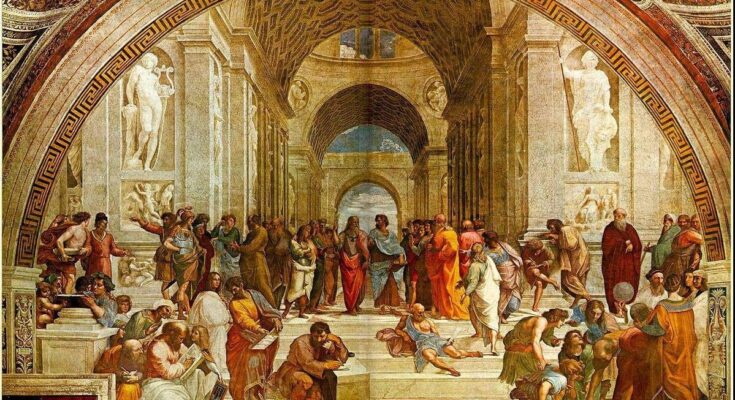A leading UK university has recently issued new guidelines that sideline ancient Greek philosophers such as Aristotle and Socrates in favor of modern Asian and African thinkers.
The new “toolkit” for schools and universities was produced by SOAS University of London, formerly the School of Oriental and African Studies.
New-age thinkers who are being recommended instead include an Indian-American feminist, a Nigerian “gender theorist” and a Japanese zen expert, the Daily Mail reports.
The toolkit dismisses the study of classical Greek thinkers Aristotle, Plato and Socrates as “armchair theorizing.” Philosophers sidelined also include Immanuel Kant and Bertrand Russel.
UK University sidelines ancient Greek philosophers
It is the first official guidance produced by SOAS academics aimed at “decolonizing” philosophy, with ambitions to provide more philosophical perspectives from Africa, Asia, the Middle East, and Latin America. The new list suggests books like The Theories of Error In Indian Philosophy, Epistemology of The Qur’an, and On Being White: Thinking Towards A Feminist Understanding Of Race and Race Supremacy.
Dr Paul Giladi, one of the academics who drew up the guidelines, explained: “Thinking back, I saw that my philosophical training had been blind to, even uninterested in, the wealth of wisdom from Africa, Asia, the Middle East, Latin America, and Indigenous communities… Learning was orientated towards obeying and reproducing an already agreed philosophical tradition that we are not meant to challenge.”
The guide describes how mainstream curriculum teaching is “predominantly focused on canonical western philosophers offering in-depth retrospections of their own experiences.” The toolkit adds: “A lot of the epistemological discourse also involves “armchair theorizing”.’
The Daily Telegraph reported that SOAS students made headlines in 2017 calling for their “white institution” to decolonize: i.e., to move its focus away from Socrates, Aristotle and Plato and instead towards “Asian or African philosophers”. Students said that given SOAS’s ethos, “the majority of the philosophers on our courses [should be] from the Global South or its diaspora.”
The late Roger Scruton, author of A History Of Modern Philosophy was scathing in his response. “This suggests ignorance, and a determination not to overcome that ignorance,” he said.
“If they think there is a colonial context from which Kant’s Critique Of Pure Reason arose, I would like to hear it,” he was quoted as saying by the Daily Telegraph.
Philosophers SOAS would like to see on the curriculum
First up is Nishida Kitaro, who died in 1945 and has been described as the most important Japanese philosopher of the 20th century.
Kitaro was an empiricist: that is, a philosopher who believes that knowledge arises from experience, unlike rationalists, who believe that true knowledge must come from reason, and logic.
Another philosopher on the list, Kwasi Wiredu, who only died in 2022, was also heavily inspired by Western philosophy. After university in Ghana, he completed a master’s at University College, Oxford.
He compounded that traditional schooling with a uniquely African strand of thinking in his philosophy, in particular urging Africans to apply logic to their superstitions.
There is a strong feminist contingent on the list. Indian-born Uma Narayan, a professor of philosophy at Vassar College, New York, resonates particularly here. She found fault with traditional teaching as a young student, saying that though she was studying a PhD in America in the 1980s – while feminist debates raged across the country – there was “not a trace” of it on the curriculum.
Another critic of the European, white-centred view of philosophy is Nkiru Nzegwu, who was born in Nigeria but is now a Professor of Africana Studies at State University of New York.
She is a poet, artist, and academic who describes herself as a Renaissance woman. On top of that, she was the first person to offer American students the chance to study hip-hop music, the Daily Telegraph says.



